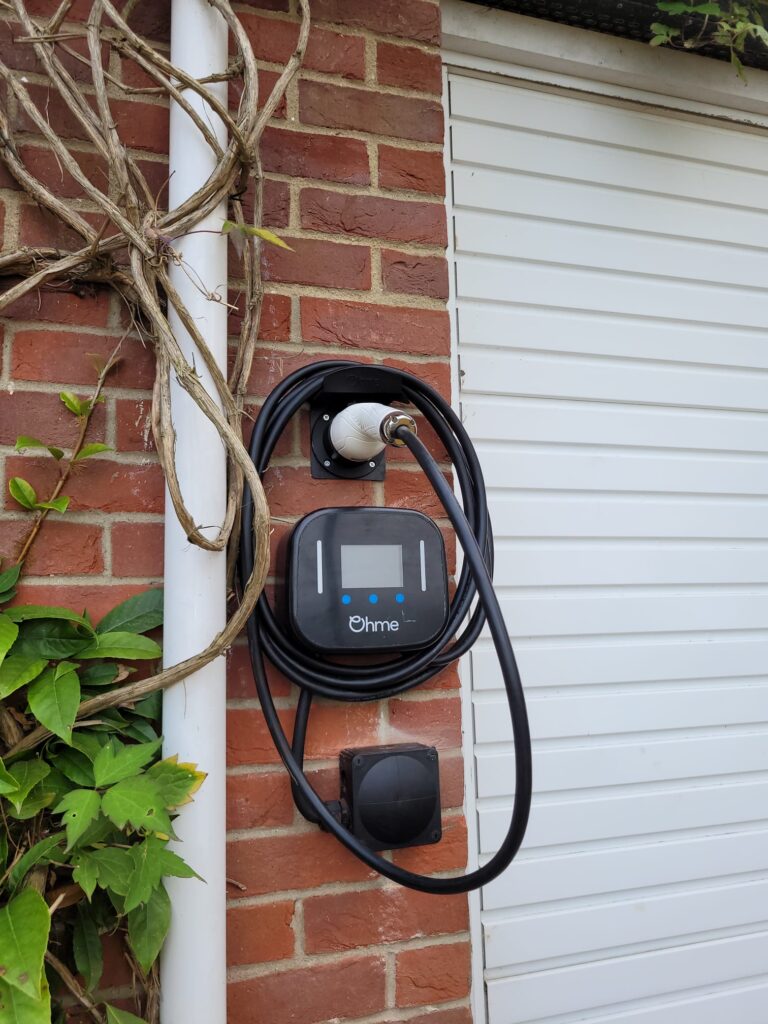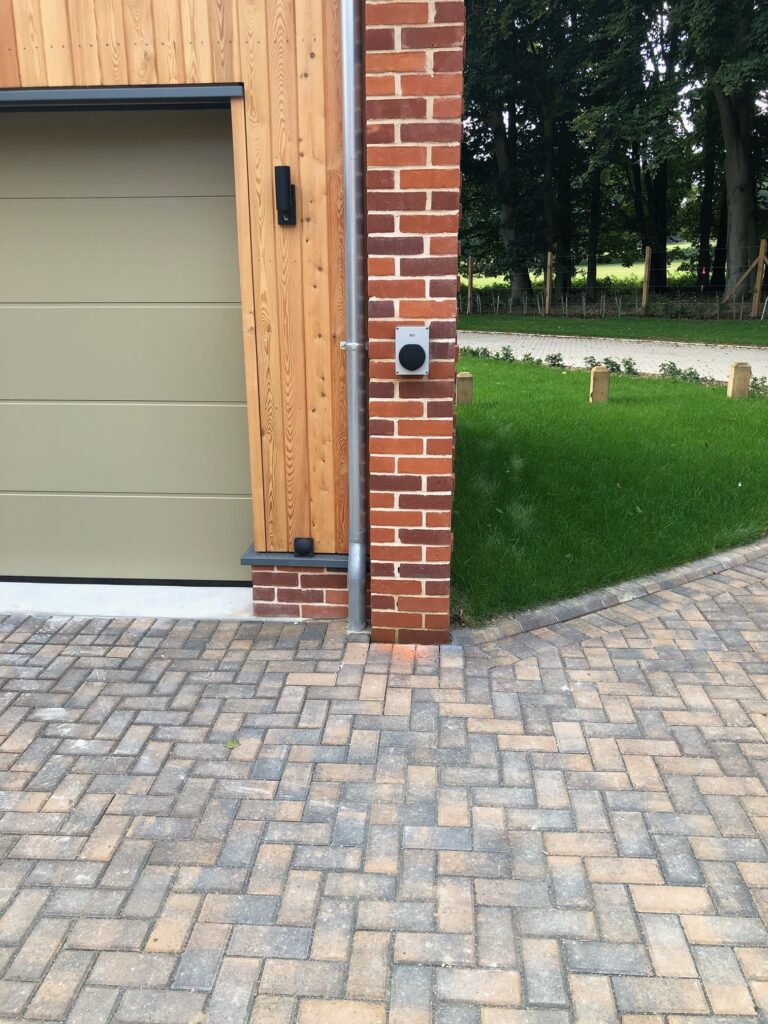As more drivers continue to make the switch to electric cars, the need for charging points has never been greater. Home EV chargers provide drivers with the ease and flexibility of charging at home.
Can you install an electric car charging point at home?
Absolutely! More and more electric car drivers are choosing to have dedicated EV home chargers installed. Some EV drivers use a Three Pin Charger (Granny Charger), but this is slow and can be unsafe if not set up correctly. Using a professionally installed car charger will ensure you are safely charging your EV, in the most efficient way.
One question we are often asked is “Do I need planning permission to have electric charging point installed?”. As long as you have off street parking and the charger will be located on your land, you are good to go. You will need to obtain planning permission if you live in a listed building, and wish to have an EV charger installed on an exterior wall.


What are the benefits of charging at home?
There are so many benefits to charging your electric car at home, the main one being the convenience. Most EV drivers charge their electric car overnight, so their car is fully charged and ready for the day ahead. Energy companies usually offer customers a cheaper overnight tariff, making EV charging even cheaper (We would recommend speaking to your energy provider about this). Having a electric vehicle charger installed can increase the value of your home (This can vary on location).
Main points to consider
When planning to have a home EV charger, there are important aspects to consider, these are:
- Location/Parking: The main point to consider when having a charging point installed is the location. Most importantly, do you have dedicated off-street parking?
- Fuse Box: The distance from the fuse box to the desired location of the electric vehicle charger may have an impact on the installation.
- Charging port: When selecting the charger would need, it is important to check the charging port on your EV. It is more common for cars to now have a Type 2 charging port, though some cars do still have the Type 1 charging port.
- Wiring: The next point to consider is which charger you feel meets your need. This includes the charging speed, connectivity types and whether you want tethered or untethered. Find out more about our EV chargers here.Don’t worry, our friendly team will discuss these points with you during the survey.
Should I get 7kW or 22kW charger?
This is another common question we get asked. It depends on how quickly you want your your car battery to be charged. The 7kW charger will charge the vehicle slower so is more suited to overnight charging. 22kW chargers deliver a higher rate of electricity (they are only available for 3 phase supplies). While they deliver more energy to your car, the charging rate may be limited by EV unit.
Is there a grant for EV charger installation?
Currently, there is a grant available for renters and flat owners. There is also a grant for small and medium businesses and landlords. As an approved installer, we can help you with the grant process while providing you with a free quote. Read more about the grants here.
The Installation Process
With our team of experts at Aspecte, our EV charger installation process is designed to be as seamless and simple as possible. Our EV charger installation follows five simple steps:
- Submit an enquiry to our friendly team, who will reply within 2 working days.
- Our team will come out to you to complete a survey on your residence.
- After the survey, our team will calculate a quote based on the work that needs to be carried out.
- Once the quote has been approved, our team will complete the work within 5 weeks.
- Our customer care team will reach out after the installation to make sure you are happy with your new EV charger.
Charger Brands Worth Checking Out
At Aspecte, we are proud to stock and install a range of electric vehicle chargers to suit our clients lifestyles. Our top three Chargers are:
- Zappi: The Zappi Home Charger is the world’s first solar powered EV charger. This home EV charger utisiles power generated from your solar panels, meaning you are effectively charging your electric car for free. This charger has two charging speeds: 7.2 kW and 22 kW.
- Ohme: The Ohme Home Charger is designed to simply the home charging process. The Ohme app provides total control of the charging process, allowing EV drivers to track when their car is charging. The Ohme Home Charger is compatible with Type 1 and 2 charging leads.
- Wallbox Pulsar Plus: The Wallbox Pulsar Max is a tethered charger that is compatible with smart tariffs such as Octopus Go. The Wallbox Pulsar Plus charger has a compatible app that enables drivers to control their charging schedule.



Conclusion
While EV chargers are an investment, they will save you time and money in the long run. If you have a question about our installation process, or would like you to discuss which EV charger would suit your routine best, call one of our expert installers today on 01953 250018.

